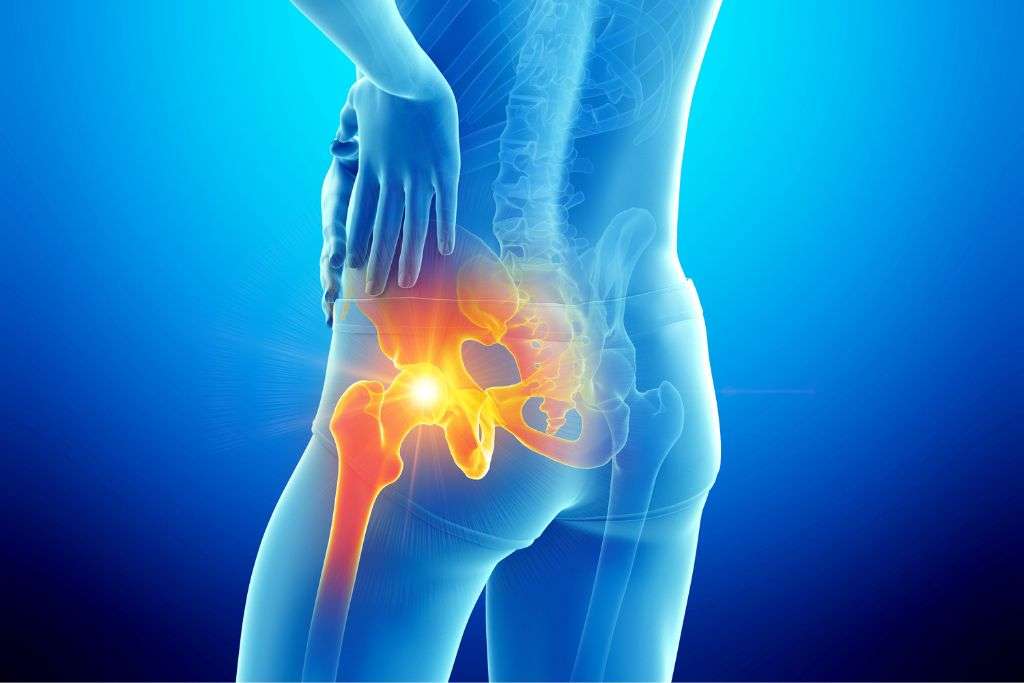
Hip pain is a common ailment that can significantly impact one’s daily life. It manifests as discomfort, soreness, or sharp pain in the hip joint and surrounding areas. Several factors can contribute to hip pain, and understanding its causes, symptoms, and treatment options is essential for effective management.
Causes of Hip Pain:
Osteoarthritis: The degeneration of joint cartilage can lead to osteoarthritis, causing pain, stiffness, and reduced mobility in the hip joint.
Rheumatoid Arthritis: An autoimmune condition, rheumatoid arthritis can affect the hip joint, leading to inflammation, pain, and joint damage.
Hip Fractures: Trauma or falls can result in hip fractures, causing intense pain and requiring prompt medical attention.
Bursitis: Inflammation of the bursae (fluid-filled sacs) around the hip joint can cause pain, swelling, and limited movement.
Tendinitis: Inflammation of the tendons, often due to overuse or injury, can lead to hip pain.
Muscle Strains: Overexertion or sudden movements can cause strains in the muscles around the hip, resulting in pain and discomfort.
Hip Labral Tears: Injuries to the cartilage (labrum) in the hip joint can cause pain, clicking, or a feeling of instability.
Sciatica: Compression of the sciatic nerve, which runs from the lower back to the legs, can cause radiating pain in the hip region.
Hip Dysplasia: An abnormal development of the hip joint can lead to pain and increased risk of osteoarthritis.
Symptoms of Hip Pain:
Pain: Persistent discomfort in the hip joint, ranging from a dull ache to sharp, stabbing pain.
Stiffness: Difficulty moving the hip joint, especially after periods of inactivity.
Swelling: Inflammation around the hip joint, often accompanied by warmth and redness.
Limited Range of Motion: Difficulty in performing routine activities due to restricted movement.
Clicking or Popping Sensation: Some conditions may cause unusual sensations within the hip joint during movement.
Radiating Pain: Pain that extends from the hip down the thigh or to the buttocks, indicative of nerve involvement.
Treatment Options:
Pain Medications: Over-the-counter or prescription medications can help manage pain and inflammation.
Physical Therapy: Targeted exercises can strengthen muscles, improve flexibility, and alleviate hip pain.
Rest and Ice: Resting the affected hip and applying ice can reduce swelling and provide relief.
Assistive Devices: Using canes, crutches, or other assistive devices can reduce pressure on the hip during recovery.
Injections: Corticosteroid injections directly into the hip joint can provide temporary relief from pain and inflammation.
Surgical Intervention: In cases of severe joint damage or fractures, surgical procedures such as hip replacement or arthroscopy may be recommended.

